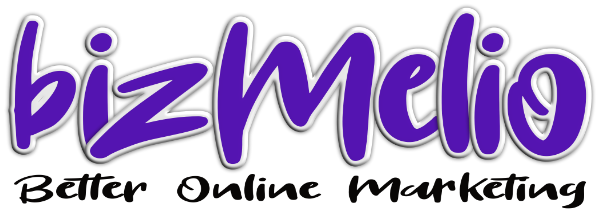Our Blog

Crafting the Future: Ethical AI Practices in the Age of Global Regulation
Artificial Intelligence (AI) is no longer the stuff of science fiction; it's the silent architect reshaping the world of business. From automating mundane tasks to making critical decisions, AI is at the heart of modern enterprises. But as AI's capabilities expand, so do the ethical questions surrounding its use. The European Union's recent regulatory framework is not just a set of rules; it's a call to arms for businesses worldwide to reconsider using this powerful technology.
This is not merely about compliance; it's about shaping a future where AI serves humanity responsibly. Let's explore how businesses can embrace this challenge and lead the way in ethical AI practices.
The Ripple Effect of European Regulation
The European Union has set the stage with a regulatory framework that could redefine AI governance globally. Their approach is straightforward: categorize AI systems based on risk, with the most stringent regulations reserved for high-risk applications—those that can impact critical infrastructure, healthcare, or employment.
But why should a U.S.-based business care about what's happening across the Atlantic? The answer is simple: the global nature of AI. Data and algorithms do not have borders nor regulations in our interconnected world. The EU's framework will likely influence global standards, meaning that compliance isn't just a European concern but a business imperative.
So, how should businesses respond? Embedding ethical practices into the DNA of their AI systems ensures they are not just legally compliant but also morally sound.
Seeing Through the Black Box: The Imperative of Transparency
AI has a reputation for being a "black box"—a system that processes data in opaque ways to even its creators. But in today's regulatory environment, opacity is a liability. Transparency isn't just about meeting regulatory requirements but building trust with customers and stakeholders.
Imagine an AI system that can explain its decisions as clearly as a human expert. This is the future we must work toward. Businesses must ensure that their AI models are transparent, understandable, and explainable.
To achieve this, document every step of your AI processes, from data collection to decision-making. This isn't just paperwork—it's the foundation of trust. When customers know how decisions are made, they're more likely to trust the outcomes. And when regulators come knocking, you'll be ready with a clear, auditable trail that shows your commitment to ethical AI.
Holding the Reins: The Necessity of Human Oversight
Even the most advanced AI should operate only with human oversight. The idea that AI can—or should—function independently in high-stakes environments is not only misguided; it's dangerous. 'Human in-the-loop oversight ensures that AI decisions align with societal values and ethical norms.
Picture an AI system in a hospital, making decisions about patient care. Now imagine that system making a mistake—one that could have been caught if a human had been in the loop. The stakes are too high to allow AI to run unchecked.
Businesses must establish clear protocols for human oversight, particularly in sectors where AI decisions can have significant consequences. This isn't about slowing down progress; it's about ensuring that progress is safe, ethical, and in the best interest of all stakeholders.
The Double-Edged Sword of Data
Data is the fuel that powers AI, but it's also the most significant source of risk. Mishandling data can lead to breaches of privacy, security issues, and, ultimately, a loss of trust. The EU's GDPR was just the beginning. The new AI regulations build on these principles, demanding even higher standards for data protection.
But data security isn't just about avoiding fines. It's about safeguarding your business's most valuable asset: its reputation. In an age where data breaches make headlines, companies must go above and beyond to protect the information they collect and process.
Encrypt, anonymize and regularly audit your data practices. Make privacy a core principle of your AI strategy, not an afterthought. This proactive approach will not only keep you on the right side of the law but also set you apart as a leader in ethical AI.
Conversations with Machines: Ethical AI Chatbots
AI chatbots are becoming the frontline of customer service, handling everything from simple queries to complex transactions. However, as these digital assistants become more sophisticated, the ethical implications of their use become more profound and require solemn contemplation of best uses, best practices, and more.
Think of a chatbot handling sensitive health information or financial data. The potential for misuse or error is high, and the consequences can be severe. That's why it's crucial to ensure that these systems are practical and ethical.
Deploy chatbots with a focus on transparency and reliability. Make it clear to users that they are interacting with AI, and ensure that human oversight is always available for complex or sensitive interactions. Regularly review and refine your chatbot algorithms to ensure they operate within ethical boundaries.
The World Is Watching: Global Compliance
AI is global, but regulations are local—at least for now. The EU's framework is likely to inspire similar regulations worldwide, meaning that businesses need to think globally regarding AI compliance.
But this isn't just about following the rules; it's about setting a standard. U.S. businesses have an opportunity to lead by example and demonstrate that ethical AI isn't just a regulatory requirement but a business advantage.
Develop a compliance strategy that goes beyond meeting the minimum standards. Aim to exceed them. By doing so, you'll not only avoid legal troubles but also position your business as a leader in the ethical use of AI.
Tools of the Trade: Leveraging CRM and Automation
In the quest to integrate ethical AI practices, businesses can't afford to go it alone. The right tools can make all the difference. CRM and automation systems designed with ethical considerations in mind can help businesses streamline their operations while maintaining high standards of transparency and accountability.
Partnering with providers like bizMelio, who understand the complexities of AI compliance, can give your business the edge it needs. These tools aren't just about efficiency; they're about building a foundation of trust that will support your business as it grows and evolves in the age of AI.
Leading by Example: The Role of Ethical AI
The future of AI is unwritten, but the choices we make today will shape it. Businesses have a unique opportunity to lead the way in responsible AI use. By embracing ethical practices, companies can influence the industry, set new standards, and build a legacy that goes beyond profit.
But this isn't just about being a good corporate citizen. Ethical AI is good for business. It builds trust, mitigates risk, and opens up new opportunities for growth and innovation. In a world where AI is increasingly under scrutiny, those who lead with ethics will lead the market.
So, where do we go from here? The path is clear. By embedding transparency, accountability, and ethics into the very fabric of your AI strategy, you'll not only comply with regulations—you'll set the standard for others to follow. The future of AI is bright, but only if we build it responsibly. Let's lead the way.
Blog & Articles

Crafting the Future: Ethical AI Practices in the Age of Global Regulation
Artificial Intelligence (AI) is no longer the stuff of science fiction; it's the silent architect reshaping the world of business. From automating mundane tasks to making critical decisions, AI is at the heart of modern enterprises. But as AI's capabilities expand, so do the ethical questions surrounding its use. The European Union's recent regulatory framework is not just a set of rules; it's a call to arms for businesses worldwide to reconsider using this powerful technology.
This is not merely about compliance; it's about shaping a future where AI serves humanity responsibly. Let's explore how businesses can embrace this challenge and lead the way in ethical AI practices.
The Ripple Effect of European Regulation
The European Union has set the stage with a regulatory framework that could redefine AI governance globally. Their approach is straightforward: categorize AI systems based on risk, with the most stringent regulations reserved for high-risk applications—those that can impact critical infrastructure, healthcare, or employment.
But why should a U.S.-based business care about what's happening across the Atlantic? The answer is simple: the global nature of AI. Data and algorithms do not have borders nor regulations in our interconnected world. The EU's framework will likely influence global standards, meaning that compliance isn't just a European concern but a business imperative.
So, how should businesses respond? Embedding ethical practices into the DNA of their AI systems ensures they are not just legally compliant but also morally sound.
Seeing Through the Black Box: The Imperative of Transparency
AI has a reputation for being a "black box"—a system that processes data in opaque ways to even its creators. But in today's regulatory environment, opacity is a liability. Transparency isn't just about meeting regulatory requirements but building trust with customers and stakeholders.
Imagine an AI system that can explain its decisions as clearly as a human expert. This is the future we must work toward. Businesses must ensure that their AI models are transparent, understandable, and explainable.
To achieve this, document every step of your AI processes, from data collection to decision-making. This isn't just paperwork—it's the foundation of trust. When customers know how decisions are made, they're more likely to trust the outcomes. And when regulators come knocking, you'll be ready with a clear, auditable trail that shows your commitment to ethical AI.
Holding the Reins: The Necessity of Human Oversight
Even the most advanced AI should operate only with human oversight. The idea that AI can—or should—function independently in high-stakes environments is not only misguided; it's dangerous. 'Human in-the-loop oversight ensures that AI decisions align with societal values and ethical norms.
Picture an AI system in a hospital, making decisions about patient care. Now imagine that system making a mistake—one that could have been caught if a human had been in the loop. The stakes are too high to allow AI to run unchecked.
Businesses must establish clear protocols for human oversight, particularly in sectors where AI decisions can have significant consequences. This isn't about slowing down progress; it's about ensuring that progress is safe, ethical, and in the best interest of all stakeholders.
The Double-Edged Sword of Data
Data is the fuel that powers AI, but it's also the most significant source of risk. Mishandling data can lead to breaches of privacy, security issues, and, ultimately, a loss of trust. The EU's GDPR was just the beginning. The new AI regulations build on these principles, demanding even higher standards for data protection.
But data security isn't just about avoiding fines. It's about safeguarding your business's most valuable asset: its reputation. In an age where data breaches make headlines, companies must go above and beyond to protect the information they collect and process.
Encrypt, anonymize and regularly audit your data practices. Make privacy a core principle of your AI strategy, not an afterthought. This proactive approach will not only keep you on the right side of the law but also set you apart as a leader in ethical AI.
Conversations with Machines: Ethical AI Chatbots
AI chatbots are becoming the frontline of customer service, handling everything from simple queries to complex transactions. However, as these digital assistants become more sophisticated, the ethical implications of their use become more profound and require solemn contemplation of best uses, best practices, and more.
Think of a chatbot handling sensitive health information or financial data. The potential for misuse or error is high, and the consequences can be severe. That's why it's crucial to ensure that these systems are practical and ethical.
Deploy chatbots with a focus on transparency and reliability. Make it clear to users that they are interacting with AI, and ensure that human oversight is always available for complex or sensitive interactions. Regularly review and refine your chatbot algorithms to ensure they operate within ethical boundaries.
The World Is Watching: Global Compliance
AI is global, but regulations are local—at least for now. The EU's framework is likely to inspire similar regulations worldwide, meaning that businesses need to think globally regarding AI compliance.
But this isn't just about following the rules; it's about setting a standard. U.S. businesses have an opportunity to lead by example and demonstrate that ethical AI isn't just a regulatory requirement but a business advantage.
Develop a compliance strategy that goes beyond meeting the minimum standards. Aim to exceed them. By doing so, you'll not only avoid legal troubles but also position your business as a leader in the ethical use of AI.
Tools of the Trade: Leveraging CRM and Automation
In the quest to integrate ethical AI practices, businesses can't afford to go it alone. The right tools can make all the difference. CRM and automation systems designed with ethical considerations in mind can help businesses streamline their operations while maintaining high standards of transparency and accountability.
Partnering with providers like bizMelio, who understand the complexities of AI compliance, can give your business the edge it needs. These tools aren't just about efficiency; they're about building a foundation of trust that will support your business as it grows and evolves in the age of AI.
Leading by Example: The Role of Ethical AI
The future of AI is unwritten, but the choices we make today will shape it. Businesses have a unique opportunity to lead the way in responsible AI use. By embracing ethical practices, companies can influence the industry, set new standards, and build a legacy that goes beyond profit.
But this isn't just about being a good corporate citizen. Ethical AI is good for business. It builds trust, mitigates risk, and opens up new opportunities for growth and innovation. In a world where AI is increasingly under scrutiny, those who lead with ethics will lead the market.
So, where do we go from here? The path is clear. By embedding transparency, accountability, and ethics into the very fabric of your AI strategy, you'll not only comply with regulations—you'll set the standard for others to follow. The future of AI is bright, but only if we build it responsibly. Let's lead the way.
Post Address and Mail
Email: [email protected]
Address
Mail: 7558 W Thunderbird Rd
STE 1-623 Peoria, AZ 85381
Get In Touch
Assistance Hours
Mon – Fri 9:00am – 5:00pm
Saturday – CLOSED
Sunday – CLOSED
Phone Number:
602-854-9823
Mail: 7558 W Thunderbird Rd
STE 1-623 Peoria, AZ 85381
Call
602-854-9823
Email:[email protected]
Site: www.bizMelio.com


